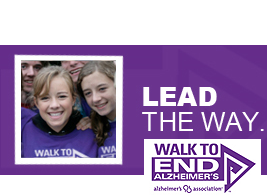
Alzheimer's Home Care in Kitsap County, WA

Alzheimer's Home Care FAQs
Has your loved one been recently diagnosed with Alzheimer’s? Your mind may be filled with a plethora of lingering questions. Here, the professionals at Visiting Angels of Kitsap County provide answers to the most common questions surrounding Alzheimer’s and Alzheimer’s home care.
What is Alzheimer’s disease?
Plainly stated, Alzheimer’s disease is a progressive, degenerative brain disorder that is characterized by memory loss, cognitive decline, and behavioral changes. These symptoms usually get worse over time. About 5.5 million Americans are living with Alzheimer 's. Most of those who live with Alzheimer’s are over the age of 65. It’s often considered a terminal condition, with an average life expectancy of 4 to 8 years after the diagnosis. Although, some live anywhere from 15 to 20 years after the diagnosis.
What is the difference between Alzheimer's and dementia?
Dementia describes a large range of brain disorders that cause memory loss. Alzheimer’s is the most common form of dementia, accounting for anywhere from 60% to 80% of the total cases.
What are the risk factors for Alzheimer’s?
Alzheimer’s has several risk factors. While scientists are still researching the exact cause of Alzheimer’s disease, researchers have identified several factors.
The three biggest risk factors for Alzheimer’s are as follows:
- Advanced Age. In most cases, symptoms of Alzheimer’s disease begin after the age of 65.
- Genetics. Individuals with a family history of Alzheimer’s disease are at higher risk of developing Alzheimer’s themselves.
- Heart Health. Poor cardiovascular health increases one’s risk of developing Alzheimer’s disease. Individuals with a history of hypertension, high cholesterol, diabetes, stroke, or cardiac arrest will be at higher risk of developing Alzheimer’s disease.
What are the symptoms of Alzheimer’s?
Alzheimer’s disease has a wide range of symptoms. Most symptoms of Alzheimer’s, particularly early on, are expressed through a person’s speech, thought patterns, and behaviors.
The most prominent symptoms of Alzheimer’s include:
- Short-term and long-term memory loss
- Trouble solving simple problems
- Uncommon struggles with day-to-day activities
- Forgets words or begins mixing up words
- Loses items or becomes lost more frequently
- Becomes confused about current time or place
- Confuses the names and identities of people
- Acts more irrationally, irritably, or depressed than usual
How does Alzheimer’s disease progress?
Researchers believe that Alzheimer’s disease begins many years before people with the disease begin to show symptoms. Symptoms typically start to appear in old age, though some cases of Alzheimer’s begin in a person’s 40’s or 50’s. Alzheimer’s is a gradual, progressive disease, with symptoms becoming worse over a period of years.
At first, symptoms will be mild and will have minimal impact on the person’s well-being. As the disease progresses, symptoms develop from mild to moderate to severe. By the final stages of the disease, the person may lose all short-term and long-term memory, the ability to speak and to understand speech, and the ability to perform basic personal activities, such as how to use the bathroom or eat on their own.
Does Alzheimer’s disease have a cure?
Currently, there’s no cure for Alzheimer’s. While scientists continue to search for a cure, doctors prescribe modern treatments that may prevent the disease, delay its initial symptoms, or slow its progress.
What are my loved one’s options for Alzheimer’s care?
One option is to put your loved one in a nursing home or an assisted living facility, but this is often traumatic for the individual. Another would be to hire Alzheimer’s home care, like the services that Visiting Angels of Kitsap County offers. This kind of senior care is personalized to cater to individuals who suffer from Alzheimer’s while being administered in the home.
Learn more about Alzheimer’s home care services offered by Visiting Angels of Kitsap County today, or contact us at 360-602-0609 to request a free consultation.
Serving Kitsap County and the West Sound Area, including Bremerton, Poulsbo, and Port Orchard, WA.
Visiting Angels KITSAP COUNTY, WA
700 Prospect St #204Port Orchard, WA 98366
Phone: 360-602-0609
Fax: 360-637-3819
